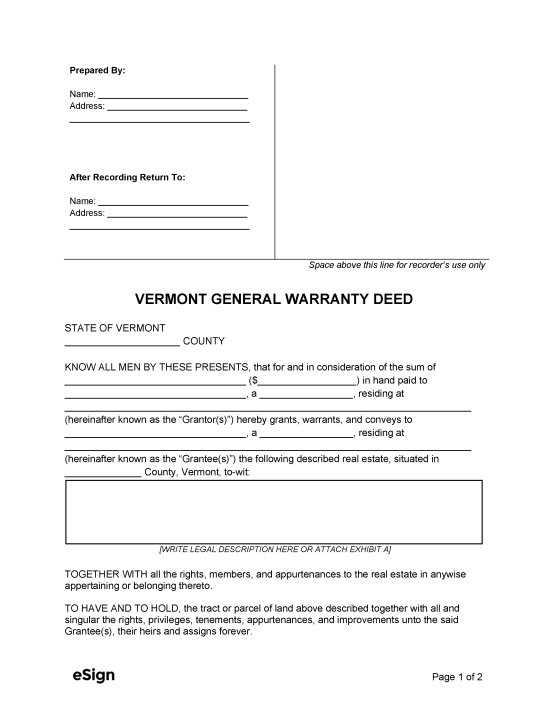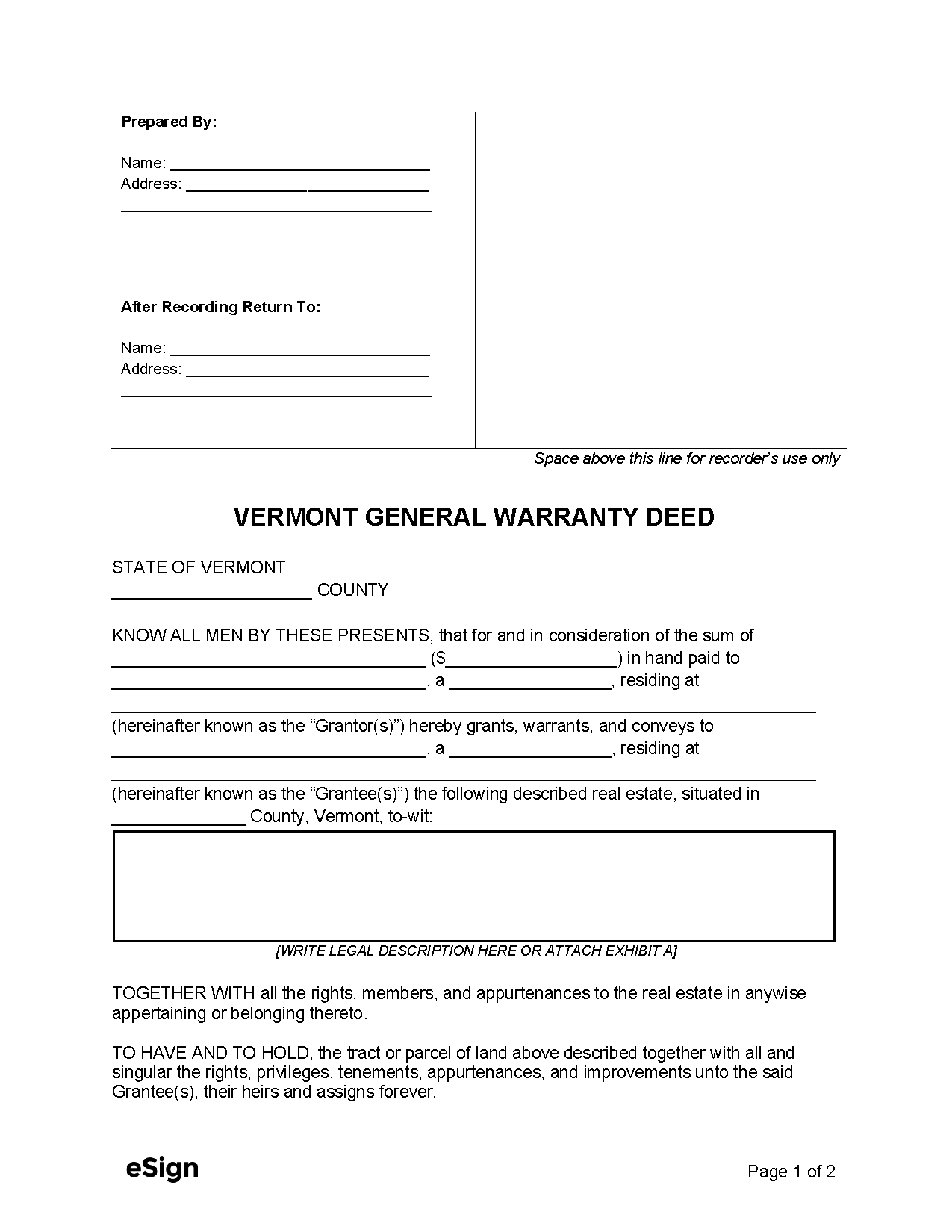How to Format
Layout
There are no state-wide formatting requirements in Vermont, but each town clerk’s office may set certain standards for recording deeds and other documents.
Signatures
Signatures on a warranty deed must be acknowledged before a notary public.[1]
Recording
Completed deeds must be filed with the Town Clerk in the city/town where the property is located. The deed may also be filed with the county clerk in the county where the property is located.[2] The cost of filing a deed is $15, as of this writing.[3]
Property Transfer Tax Return (Form PTT-172) – This tax return form must be filed at the same time as any deed to provide information concerning the property transfer (Tax Return Instructions).[4] The cost of filing this document is $15 (at the time of writing).[5]

